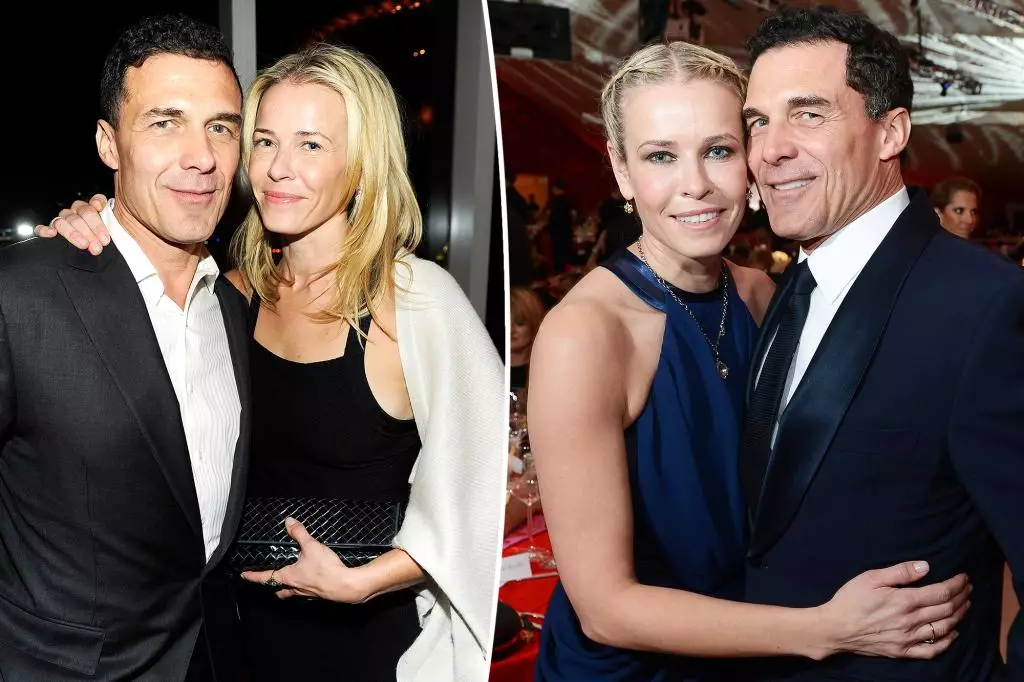The intricacies of romantic relationships often reveal not just deep emotional connections but also the darker facets of love, exemplified in Chelsea Handler’s recollections of her relationship with hotelier André Balazs. In a recent candid interview, Handler opened up about a significant past relationship, pointing to a time filled with strain and emotional upheaval that she now recognizes as “toxic.” This public introspection brought both clarity and closure to her experience while simultaneously shining a light on the reality of unhealthy romances.
The Weight of Toxic Relationships
Handler’s reflection on her previous relationship suggests a tumultuous bond where paranoia and distrust ruled the day. By describing the experience as bringing out “the worst in both of [them],” she acknowledges the cyclical nature of toxic relationships, where two individuals may inadvertently exacerbate each other’s insecurities and negative traits. Handler’s tendency to snoop through her partner’s phone, compounded by his late nights out, created a breeding ground for jealousy and mistrust—common characteristics of a dysfunctional relationship. This confessional narrative serves as a reminder of the personal battles many face within such dynamics and underscores Handler’s evolution as an individual who can now recognize and critique her past behavior.
In discussing the end of her relationship, Handler recounted the unorthodox choice to gift Balazs a stunning array of trees as a symbolic farewell. The extravagant gesture—importing 35 linden trees and artfully arranging them along his estate’s entrance—is striking, not only for its grandeur but also for the bittersweet motivations behind it. Handler’s desire to have her former partner constantly reminded of her presence and the loss he suffered illustrates the complexity of emotional retaliation often seen in breakups. The trees, meant to flourish season after season, symbolize a connection that continues long after parting ways. They serve as tangible reminders of their shared past, forever reminding Balazs of Handler, regardless of how she chooses to respond to his subsequent texts.
Handler’s description of how the changing seasons provide an annual reminder of their relationship adds a poetic layer to the story. The notion that Balazs would text her each spring and fall, lamenting his loss and asking if she might visit her trees, indicates an ongoing emotional attachment. It is both poignant and somewhat tragic—the idea that the reminders of love can transform into symbols of regret underscores an important aspect of romantic relationships: the lasting impact that they can have even after they have ended. Handler’s choice to ignore these invitations speaks volumes about her journey towards self-empowerment and emotional independence.
As Handler continues to navigate her dating life, characterized by a string of high-profile relationships, this narrative offers insight into her growth. With past ties to public figures like Jo Koy and 50 Cent, Handler’s experiences seem to reflect a deeper understanding of her needs and boundaries. By openly discussing the toxic dynamics of her previous romance, Handler seems to establish her voice in a realm that often stifles women’s experiences and emotions. Furthermore, recognizing one’s own destructive patterns is a pivotal step toward personal growth and healthier future relationships.
In revisiting her past, Handler deftly encapsulates the tumult of a relationship marked by toxicity while turning it into an opportunity for healing and self-discovery. The saga draws attention not only to her personal journey but also to broader themes relating to self-worth, emotional battles, and the complexities of love. Handler’s memories of gifting trees serve as a metaphor for the growth we all desire from our pasts—ever present, ever shaping, and sometimes, inevitably bittersweet. In recognizing and sharing these lessons, Handler sets the stage for both her own transformation and possibly, a healthier chapter in her romantic life.

